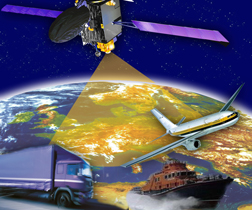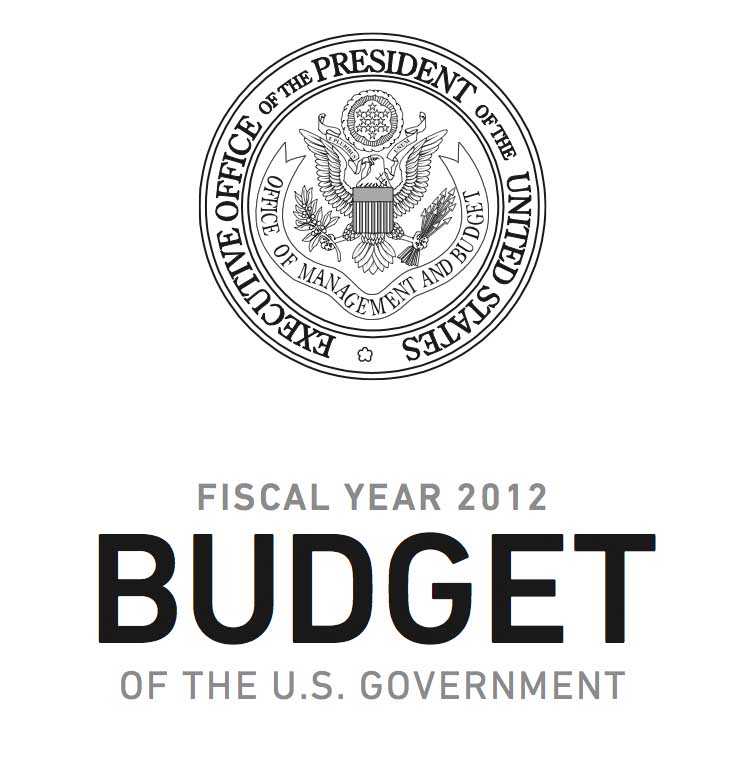On December 4, 2004, George W. Bush signed a National Security Presidential Directive (NSPD) that established the national policy for U.S. Space-Based Positioning, Navigation, and Timing (PNT). The directive updated the 1996 National Policy on the Global Positioning System (GPS). It also provided guidance for the procurement, management, and protection of GPS and its U.S. government operated augmentations.
On December 4, 2004, George W. Bush signed a National Security Presidential Directive (NSPD) that established the national policy for U.S. Space-Based Positioning, Navigation, and Timing (PNT). The directive updated the 1996 National Policy on the Global Positioning System (GPS). It also provided guidance for the procurement, management, and protection of GPS and its U.S. government operated augmentations.
The policy created the National Space-Based Positioning, Navigation and Timing Executive Committee (EXCOM), which was charged with advisory and coordinative roles among federal agencies regarding policies, issues, and initiatives involving GPS and related space-based PNT systems. The article will briefly describe the EXCOM’s role and activities as well as that of the staff organization created to support it.
EXCOM: Members and Staff
The space-based PNT EXCOM is co-chaired by the Hon. Gordon England, the deputy secretary of the Department of Defense (DoD), and his counterpart at the Department of Transportation (DoT), the Hon. Maria Cino. Committee members include representatives at the equivalent level from the departments of state, commerce, and homeland security; the Joint Chiefs of Staff, NASA, and from other departments and agencies as required. The EXCOM met four times in 2006, addressing key issues related to policy implementation, GPS program modernization, international competition, and cooperation.
The National Coordination Office for Space-Based Positioning, Navigation and Timing was established on November 1, 2005, to serve as the administrative secretariat for the National Positioning, Navigation and Timing Executive Committee. The coordination office is staffed by subject matter experts from the member EXCOM organizations.
The Coordination Office monitors the status of policy implementation actions, coordinates outreach initiatives, and manages key EXCOM-directed activities and studies. It has been involved in a wide-range of international, national, and local issues during the past year. Interagency efforts also focused on ensuring the GPS modernization program proceeds on a schedule to meet growing public demands for space-based positioning, navigation and timing services.
External Activities
During the past year, U.S. government departments and agencies initiated a variety of mechanisms to promote international global navigation satellite systems both in a bilateral way and through international multilateral bodies.
Working groups established under the U.S./European Union GPS-Galileo Agreement convened during 2006 to review items of mutual interest and strive to ensure the future availability of easily accessible, accurate, and reliable PNT systems and services for users throughout the world. In March 2006, a bilateral expert group on radio frequency compatibility and interoperability (Working Group A) successfully produced a jointly optimized common signal after 21 months of cooperative effort. Working Group B on trade and civil applications just held its first meeting March 16–17 in Washington, D.C. A joint statement from that discussion is available on the PNT Web site discussed later in this article.
Working Group C, which generally will deal with design and development of next-generation satellite navigation and timing, is expected to hold its first meeting this spring with a particular focus on interoperable safety-of-life services between GPS and Galileo. The fourth working group, which deals with security issues, held its first meeting last year.
In addition, working in cooperation with the United Nations Office of Outer Space Affairs, the United States welcomed the creation of the U.N. International Committee on Global Navigation Satellite Systems (ICG). The ICG will provide a significant opportunity to reach out to developing countries to discuss and interact on technical issues involved in space-based PNT services.
Those activities are anticipated to include providing assistance to developing countries in identifying and eliminating sources of electromagnetic interference with GPS as well as organizing seminars on a variety of GNSS topics such as applications and spectrum protection. The United States also worked with the ICG to establish a Providers’ Forum to promote multilateral engagement with other service provider nations, including Russia (GLONASS); the European Union (Galileo and the European Geostationary Navigation Overlay Service or EGNOS); Japan (the MTSAT Space-based Augmentation System, MSAS); and India (the Indian Radionavigation Satellite System, IRNSS, and the GPS and GEO Augmented Navigation system, GAGAN).
The forum will provide a vehicle to promote multilateral engagement with foreign space-based positioning, navigation, and timing service providers. This forum will provide a means to promote discussion on key issues and principles such as compatibility, interoperability, trade, and business practices.
The U.S. government will maintain an active role in the ICG and the Providers’ Forum in order to develop important alliances with developing countries regarding space-based PNT services.
Public Outreach
A key U.S. policy goal is to promote U.S. technological leadership in applications involving space-based PNT services, particularly the Global Positioning System. To support this goal, the Coordination Office developed and produced brochures for national and international users, decision-makers and the general public. These brochures emphasize the economic, safety, security, scientific, and personal benefits of using GPS.
Brochures and online products produced in English, Spanish, and French provide factual, authoritative information in easy-to-understand formats. The Coordination Office also plans to translate this material into Arabic and other languages, as required. Brochures are available in hardcopy for conferences, meetings and symposia through the Coordination Office.
A newly created Web site provides information about the EXCOM and Coordination Office, PNT policy, the U.S. Space-Based PNT Advisory Board, and frequently asked questions. It also contains public domain presentations for information and field use. Since its inception, more than 70,000 visitors have explored the site’s resources, and the site currently gets about 250 visitors per day. For PNT info, visit <http://www.pnt.gov>.
A second Web site was launched last September to cover GPS applications and serve as a repository for news media and general public information, including the brochures mentioned earlier. The site, which has had 11,500 visitors since it opened, also has links to related online material. To learn more about GPS, visit: <http://www.gps.gov>.
National PNT Advisory Board
The EXCOM established a National Space-Based Positioning, Navigation, and Timing Advisory Board in early 2006. NASA will host and provide administrative support for this group, which will operate solely in an advisory capacity as directed by the National PNT Policy and in accordance with the Federal Advisory Committee Act. The board will advise on U.S. space-based PNT policy, planning, program management, funding, and other pertinent issues.
The board charter was approved by the EXCOM in early 2006 and signed by the NASA Administrator on April 18, 2006. The Coordination Office managed EXCOM member input for study topics and will present them at the board’s first meeting in March 2007.
PNT Coordination Office
The EXCOM has tasked the Coordination Office to work with the DoD National Security Space Office and the DoT Research and Innovative Technology Administration to develop a U.S. space-based PNT architecture. This architecture will help guide future PNT systems’ investment and implementation decisions. The objective is to provide effective and efficient PNT capabilities in the post-2025 timeframe and an evolutionary path for PNT systems and services.
The Coordination Office provides the EXCOM with requested information and assessments of U.S. government space-based PNT programs, policies, budgets, and activities, with a focus on national interests and interdependencies. Agency and department planning includes the development, acquisition, deployment, operation, sustainment, and modernization of U.S. space-based PNT systems, including GPS and its U.S. augmentation.
The Coordination Office gathers data to provide the EXCOM with the required information to develop inclusive national requirements for space-based PNT and to identify interagency program dependencies, such as between the GPS program and the Federal Aviation Administration’s Wide Area Augmentation System.
Looking to the future: 2007 and beyond
In 2007 and beyond, the Coordination Office will continue to evolve in support of the Executive Committee. The Coordination Office will work closely with the departments and agencies that comprise the EXCOM, as they continue to implement U.S. government PNT policies and strategies within their individual areas of responsibility.
During the coming years, the Coordination Office will remain active in PNT symposiums and conferences delivering the U.S. message to international, national, and local audiences. The Coordination Office will report on GPS-related issues and identify opportunities to promote U.S. policy goals through our Web sites, individual presentations, media outlets, and conferences.
Our goal is to focus efforts on making sustained progress toward achieving the goals set by the 2004 National Positioning, Navigation and Timing Policy and maintaining free, uninterrupted public access to GPS and similar space-based PNT services throughout the world.






